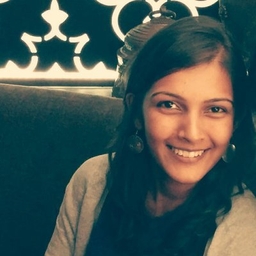
Priyanka Runwal
Science, Environment and Health Journalist at Freelance
Freelance science reporter | previously @NatGeo covering COVID-19 and health | @UCSC_SciCom | 🇮🇳 in 🇺🇸
Articles
-
1 month ago |
cen.acs.org | Priyanka Runwal
In the first 48 h after K.J. Muldoon's birth last year, doctors noticed signs of lethargy and respiratory distress. A blood test revealed off-the-charts ammonia levels-they exceeded 1,000 µmol/L, which is far above the 9-33 µmol/L range considered normal. Soon, doctors diagnosed K. J. with a severe form of a rare genetic disorder known as carbamoyl phosphate synthetase 1 (CPS1) deficiency, which affects approximately 1 in 1.3 million people worldwide.
-
1 month ago |
cen.acs.org | Priyanka Runwal
Several developments last month are likely to shape the future of the controversial deep-sea mining industry. A congressional hearing on the subject highlighted the widely touted promise of seabed mining and its perils. On April 24, US president Donald J. Trump signed an executive order to expedite the review and issuing of seabed mining licenses and permits in international waters.
OxyVinyls will contribute to the $600 million settlement in the East Palestine train derailment case
2 months ago |
cen.acs.org | Priyanka Runwal
In September, a federal judge approved a $600 million class-action settlement against Norfolk Southern-the freight company responsible for the Feb. 3, 2023, train derailment in East Palestine, Ohio, which released toxic chemicals into the air and local environment. The payment would compensate individuals and businesses affected by the derailment.
-
2 months ago |
cen.acs.org | Priyanka Runwal
Around 2am on April 16 in Geneva, the World Health Organization's member states finalized the draft of a global pandemic agreement. Aimed at strengthening pandemic prevention, preparedness, and response, the agreement took 3½ years of intensive negotiations. "Tonight marks a significant milestone in our shared journey toward a safer world," the WHO's director-general, Tedros Adhanom Ghebreyesus, said in his concluding remarks.
-
2 months ago |
cen.acs.org | Priyanka Runwal
In late March, The Metals Company, a Canadian deep-sea mining firm, announced that it would seek approval from US agencies to extract critical minerals in areas of the ocean floor that are beyond US jurisdiction. If approved, the move would be the first to bypass the International Seabed Authority (ISA). These seabed mineral resources are in demand for clean energy technologies, but mining them could disturb fragile marine environments and disrupt unique biodiversity.
Try JournoFinder For Free
Search and contact over 1M+ journalist profiles, browse 100M+ articles, and unlock powerful PR tools.
Start Your 7-Day Free Trial →Coverage map
X (formerly Twitter)
- Followers
- 1K
- Tweets
- 942
- DMs Open
- Yes

RT @VeraMBergen: I can’t wrap my mind around the existence of this clip. https://t.co/1XvBYWlMxg

RT @IAPonomarenko: NUCLEAR WASTE FACILITIES TARGETED IN KYIV, HIGH RISK OF RADIOACTIVE CONTAMINATION

RT @imraansiddiqi: “Civilized” https://t.co/AiU7uVmjMr

